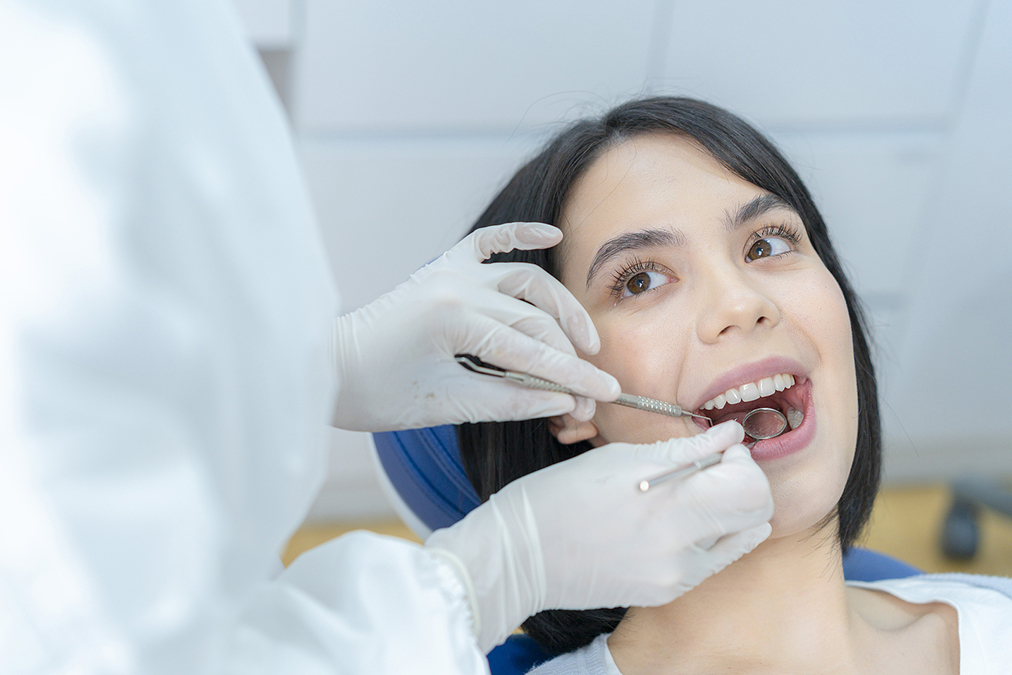 It is tempting to think of gum disease as something that happens mostly in our mouths.
It is tempting to think of gum disease as something that happens mostly in our mouths.
But a study presented at a Copenhagen meeting of the European Federation of Periodontology warns that the consequences of gum disease reach far beyond our mouths…
Even as far as harming those you love the most.
By now, we know that the bacteria that infect our gums can spread throughout our bodies and cause other diseases such as heart disease and diabetes. Given these previous findings, the scientists responsible for this study wondered whether it could affect the health of newborn babies, too.
They recruited 77 women who had given birth in the past 6 days. They measured the bacteria and inflammation in their mouths, examined each tooth to check for gum bleeding, and checked gum pocket depth and loss of attachment of their teeth. All these occur in gum disease.
Thirty-three of these women had delivered their babies prematurely, before 37 weeks of pregnancy, whereas the other 44 had given birth to full-term babies.
When they compared the women who had given birth to preterm babies with those who had produced full-term babies, the former were more likely to have harmful oral bacteria, more likely to have lost the gum tissue supporting their teeth, and had more sites with deep pockets, indicating damaged gums.
Furthermore, when compared with women with good oral health and with those with bleeding but no deep pockets indicating serious gum damage, the women with gum disease gave birth to babies with the lowest birth weight.
This is incredibly important as preterm births can explain as many as 75% of infant deaths and more than 50% of childhood developmental disorders.
If this study is right, it shows that some cases of preterm birth can be prevented by keeping our teeth clean and by promoting healthy gums.
Interestingly, in the same month, the journal Clinical, Cosmetic and Investigational Dentistry produced a study that identified the prevalence and risk factors of gum disease among pregnant women in Ethiopia.
Among their 618 participants aged 31.07 years, they found gum disease in a staggering 38.8%.
It was more common in those who were illiterate, poor, depressed, and underweight. It was also more common in women who had a history of diabetes and who lacked information about gum disease.
We do have information about gum disease and about the methods we can use to prevent it, and the chance of being, for example, underweight and illiterate is smaller in the United States and Europe. As such, gum disease should be preventable among relatively privileged pregnant women in Western countries.
Now, whether or not you’re a man or a woman, or of childbearing age or not, the main lesson of this study is not what gum disease can do to unborn children but rather just how far the bacteria can travel. If it can harm the womb, then it can surely go to the brain or heart or any other organ.

 Multiple Sclerosis
Multiple Sclerosis Banishing Bronchitis
Banishing Bronchitis Gum Disease Gone
Gum Disease Gone Overcoming Onychomycosis
Overcoming Onychomycosis Neuropathy No More
Neuropathy No More The Prostate Protocol
The Prostate Protocol Brain Booster
Brain Booster
 Ironbound
Ironbound
 Solution for Shingles
Solution for Shingles
 The Bone Density Solution
The Bone Density Solution
 The Ultimate Healing Protocol
The Ultimate Healing Protocol
 The Parkinson's Protocol
The Parkinson's Protocol
 The Chronic Kidney Disease Solution
The Chronic Kidney Disease Solution
 Overthrowing Anxiety
Overthrowing Anxiety The Fatty Liver Solution
The Fatty Liver Solution The Hypothyroidism Solution
The Hypothyroidism Solution
 The End of Gout
The End of Gout The Blood Pressure Program
The Blood Pressure Program
 The Oxigized Cholesterol Strategy
The Oxigized Cholesterol Strategy
 Stop Snoring And Sleep Apnea Program
Stop Snoring And Sleep Apnea Program
 The Arthritis Strategy
The Arthritis Strategy The Vertigo & Dizziness Program
The Vertigo & Dizziness Program The 3-Step Diabetes Strategy
The 3-Step Diabetes Strategy Hemorrhoids Healing Protocol
Hemorrhoids Healing Protocol The Erectile Dysfunction Master
The Erectile Dysfunction Master Weight Loss Breeze
Weight Loss Breeze The IBS Program
The IBS Program The Insomnia Program
The Insomnia Program The Migraine and Headache Program
The Migraine and Headache Program The Neck Pain Solution
The Neck Pain Solution The Menopause Solution
The Menopause Solution The Ejaculation Master
The Ejaculation Master The TMJ Solution
The TMJ Solution The Acid Reflux Solution
The Acid Reflux Solution The Fibromyalgia Solution
The Fibromyalgia Solution The Psoriasis Strategy
The Psoriasis Strategy